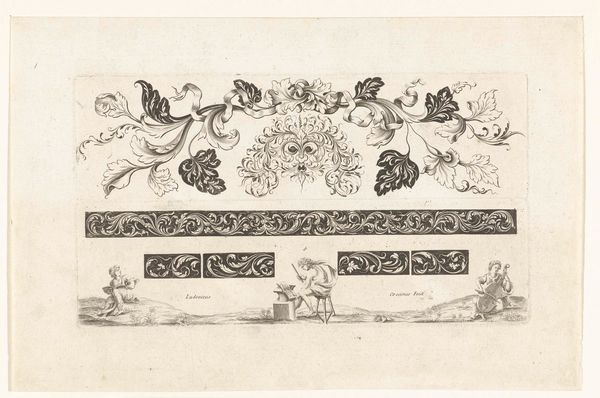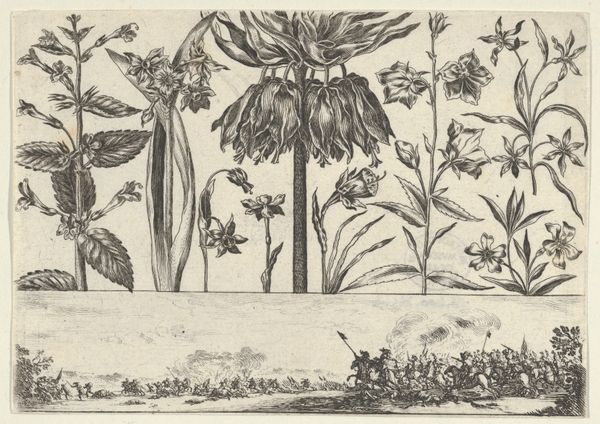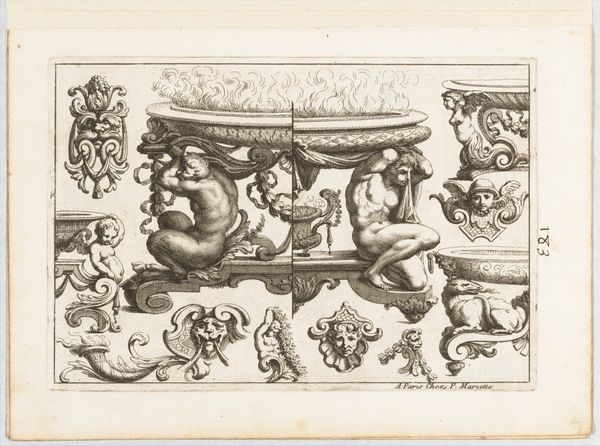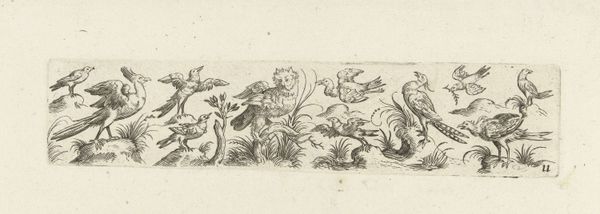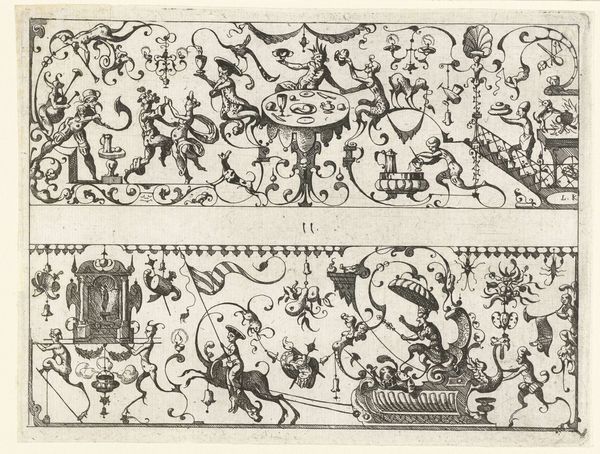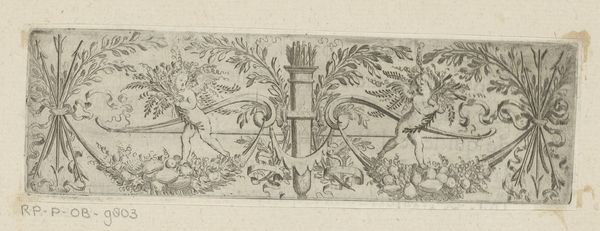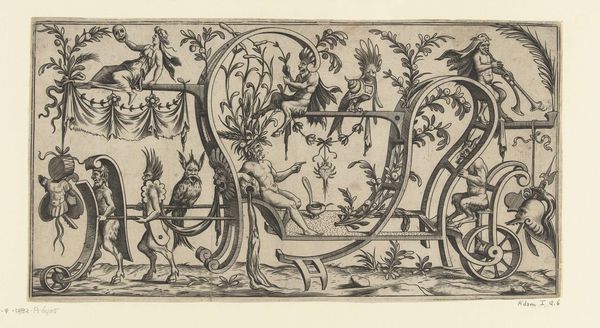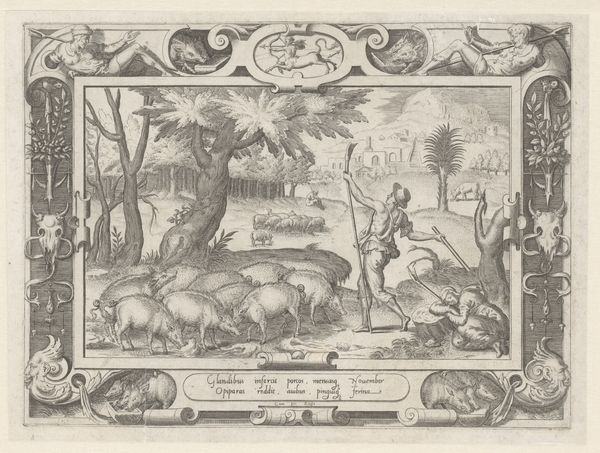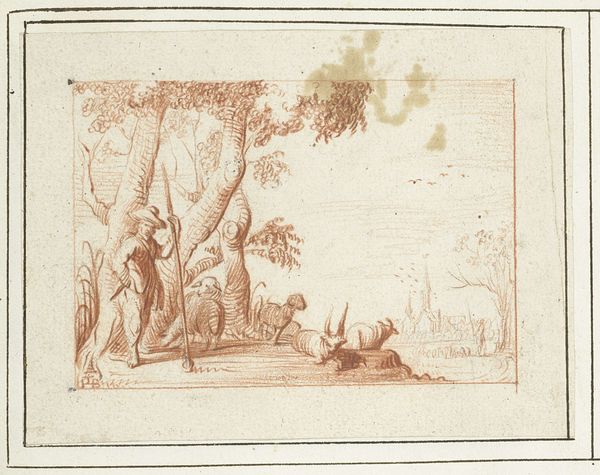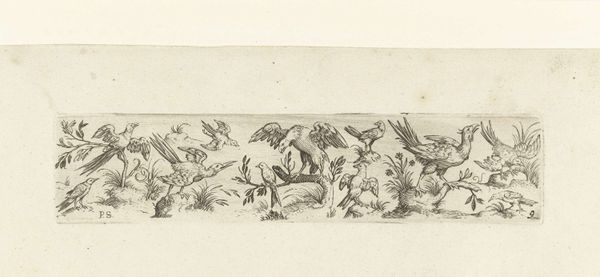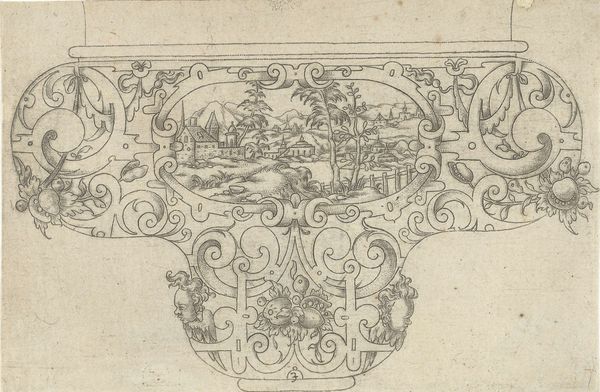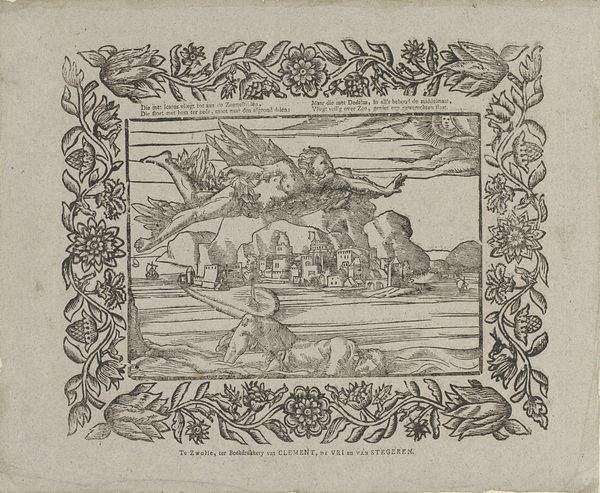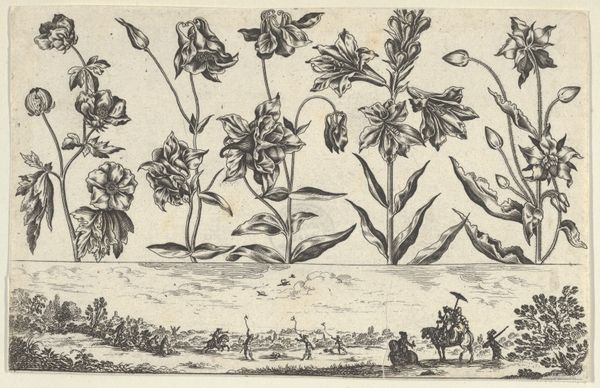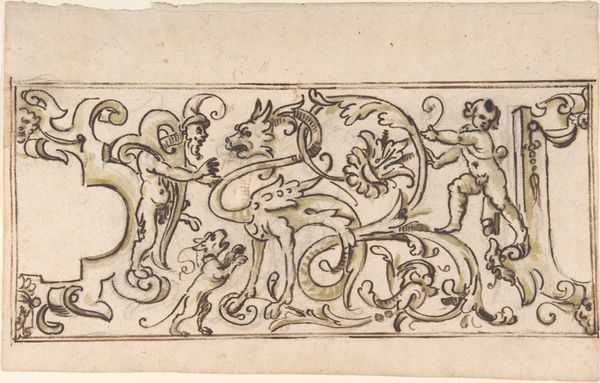
drawing, ornament, print, etching, engraving
#
drawing
#
comic strip sketch
#
ornament
#
baroque
#
pen drawing
# print
#
pen illustration
#
pen sketch
#
etching
#
old engraving style
#
figuration
#
personal sketchbook
#
geometric
#
pen-ink sketch
#
line
#
pen work
#
sketchbook drawing
#
sketchbook art
#
engraving
Dimensions: height 52 mm, width 70 mm
Copyright: Rijks Museum: Open Domain
Henri Toutin made this Ornament for goldsmith work with birds, insects, and figures in the 17th century. It's an etching on paper, a printmaking process that uses acid to cut into the metal plate before inking and printing. The visual language of the ornament demonstrates the close ties between goldsmithing and printmaking during this period. Etchings like this weren’t intended as artworks in their own right, but served as guides for other artisans who worked with precious metals. Note the three distinct registers, each offering a different ornamental possibility. The top shows a rural scene, perhaps reflecting the agrarian base of the economy at the time. The middle and bottom registers display floral and foliate motifs. The print exemplifies the era's emphasis on ornamentation as a sign of luxury. Goldsmiths relied on this intricate imagery to embellish silverware and jewelry, catering to the tastes of a wealthy clientele. As such, this modest etching embodies a whole system of labor and consumption. It reminds us of the many hands involved in the creation of even the smallest decorative detail.
Comments
No comments
Be the first to comment and join the conversation on the ultimate creative platform.
